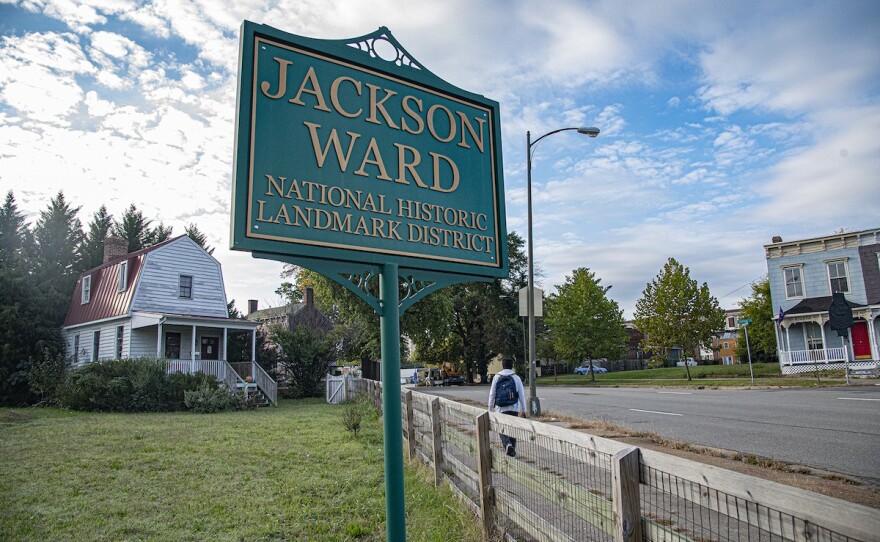The U.S. Department of Transportation recently announced the city of Richmond would receive $1.3 million to devise a plan for building a cap over Interstate 95.
When the freeway was first built in the 1950s, it cut through the Jackson Ward neighborhood, displacing thousands of Black residents. The economic and political ramifications "persist to this day,” according to USDOT.
The northern portion of the neighborhood has double the unemployment, and household incomes there are one-third of those south of the interstate.
The Richmond-Petersburg Turnpike opened in 1958 and was later designated as “I-95.” About 150,000 cars drive along the stretch that splits Jackson Ward each day, according to 2021 data from the Virginia Department of Transportation. A cap, also known as a freeway lid, would physically reconnect both parts of Jackson Ward through urban renewal.
Maritza Pechin, the city’s deputy director for equitable development, said the grant will be able to expand on an existing feasibility study and “hone in on the specific project that we want to accomplish.”
The study will range from big questions — like where to place the cap and its possible traffic impact — to small details like what sorts of trees to plant on new green space.
Community members have also been calling for the project to include a form of reparations, including at a march in September.
Richmond has yet to be awarded the money, which City Council must also vote to accept first. Once it has, the city will hire a consultant team of engineers and community engagement specialists.
Richmond’s total cost for the study is estimated to be $1,690,000, a difference of $340,000, which accounts for federal grant program rules.
Pechin said that community engagement is key to making the I-95 cap project successful.
“People are rightly very concerned about any kind of investment into their community by the government because in the past those investments have led to them being displaced,” she said in an interview Tuesday.
Pechin said working with the community through relationship-building was to reassure residents about their future and show them “how they can use policy and process in order to ensure their place in the future community.”
Four sections were listed as possible locations for the cap in the city’s draft feasibility study. Depending on how large and where, a cap could cost anywhere from approximately $100 million to over $400 million.
Richmond’s proposal was one of 45 that USDOT funded with $185 million from President Joe Biden’s infrastructure law. The Reconnecting Communities Pilot Program will provide $1 billion over five years.
There is at least one cap-like project already present in Richmond: Kanawha Plaza over I-195.
Norfolk also won money for a planning grant to tackle what’s referred to as the "spaghetti bowl," described as “a 14-lane-wide jumble of I-264 ramps and interchanges that cuts a low-income and vast majority Black neighborhood off from the core downtown area.”
The USDOT received 370 applications that did not receive funding, including proposals from Alexandria, Chesapeake and James City County. The Inflation Reduction Act also has a program to fund projects to reconnect communities. USDOT said it anticipates launching the Neighborhood Access and Equity Grant Program this spring.
“We are proud to announce the first grantees of our Reconnecting Communities Program, which will unite neighborhoods, ensure the future is better than the past, and provide Americans with better access to jobs, health care, groceries and other essentials,” said U.S. Transportation Secretary Pete Buttigieg in a press release announcing the grants.



